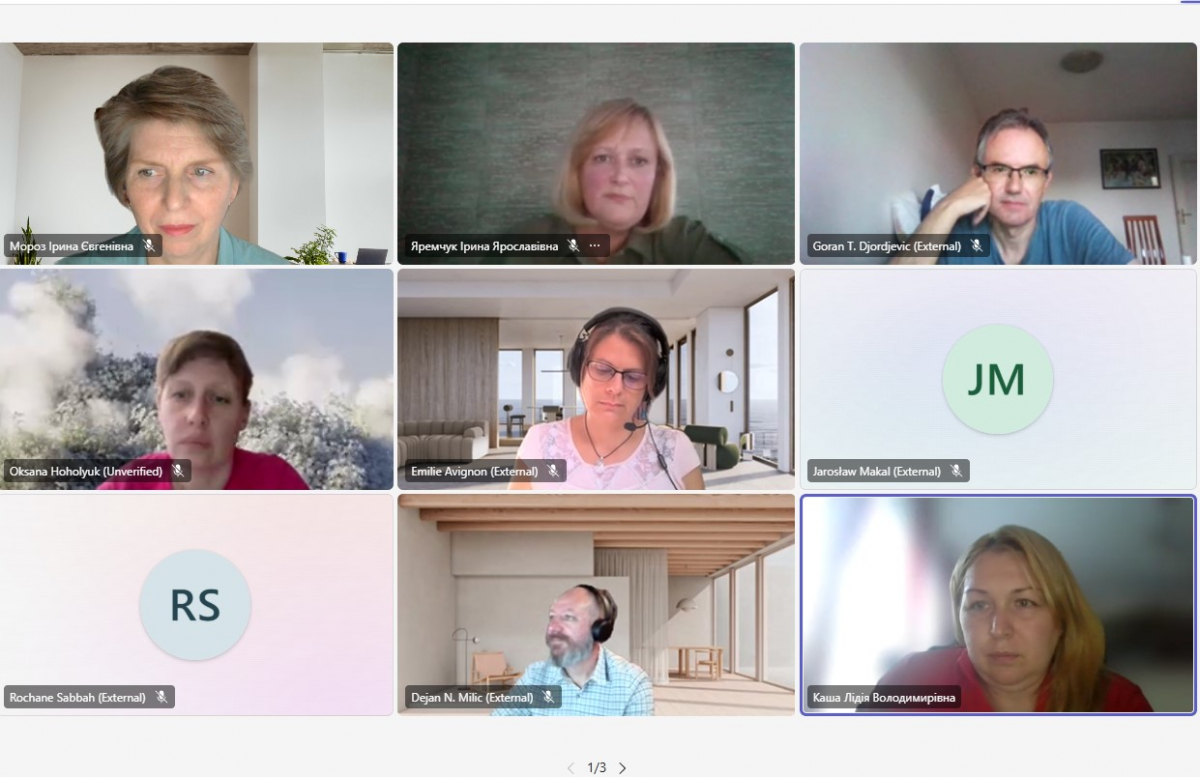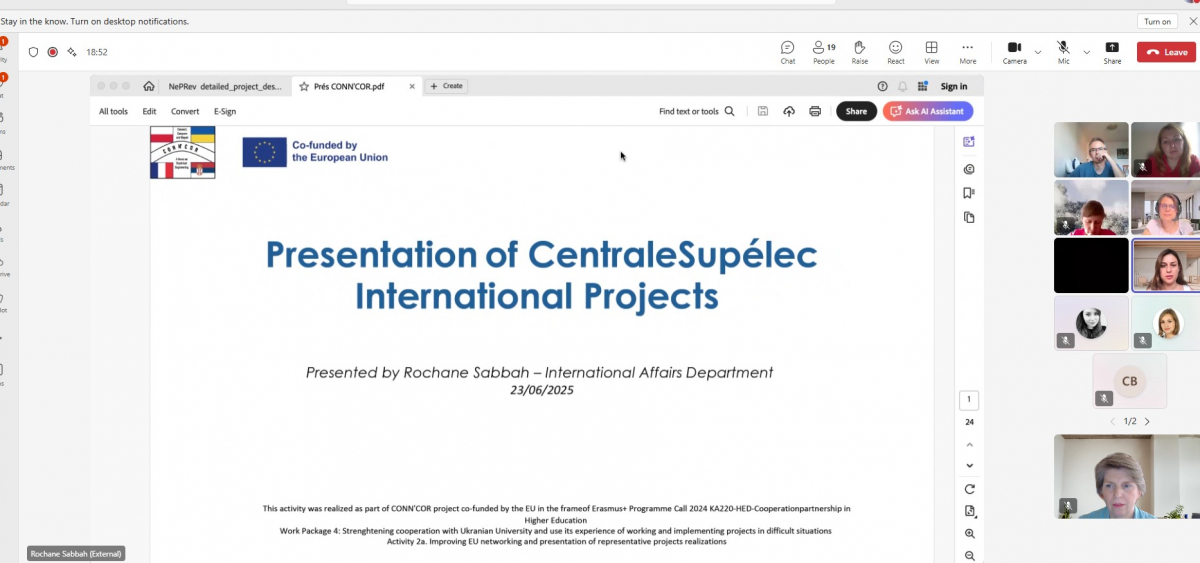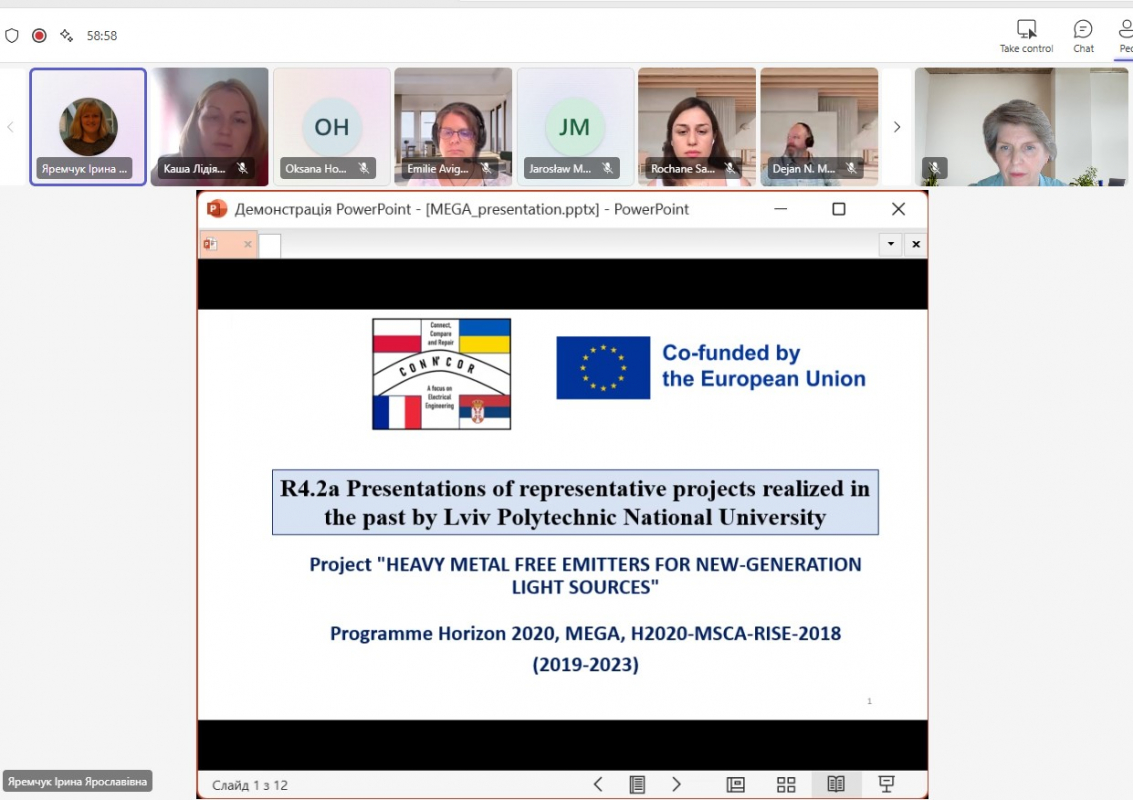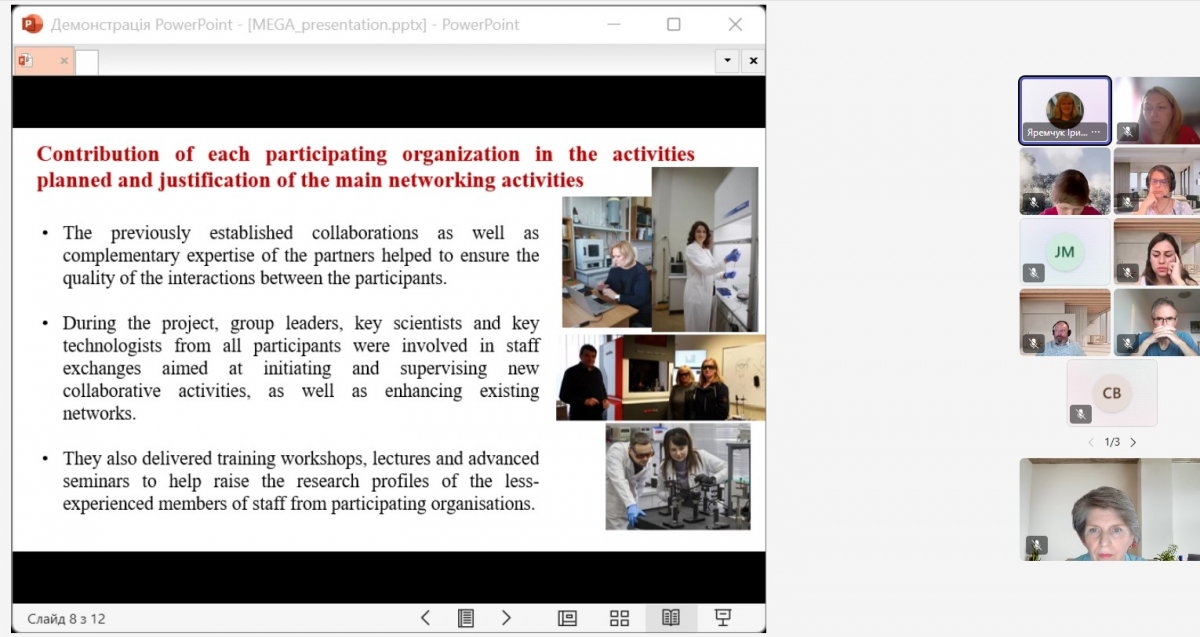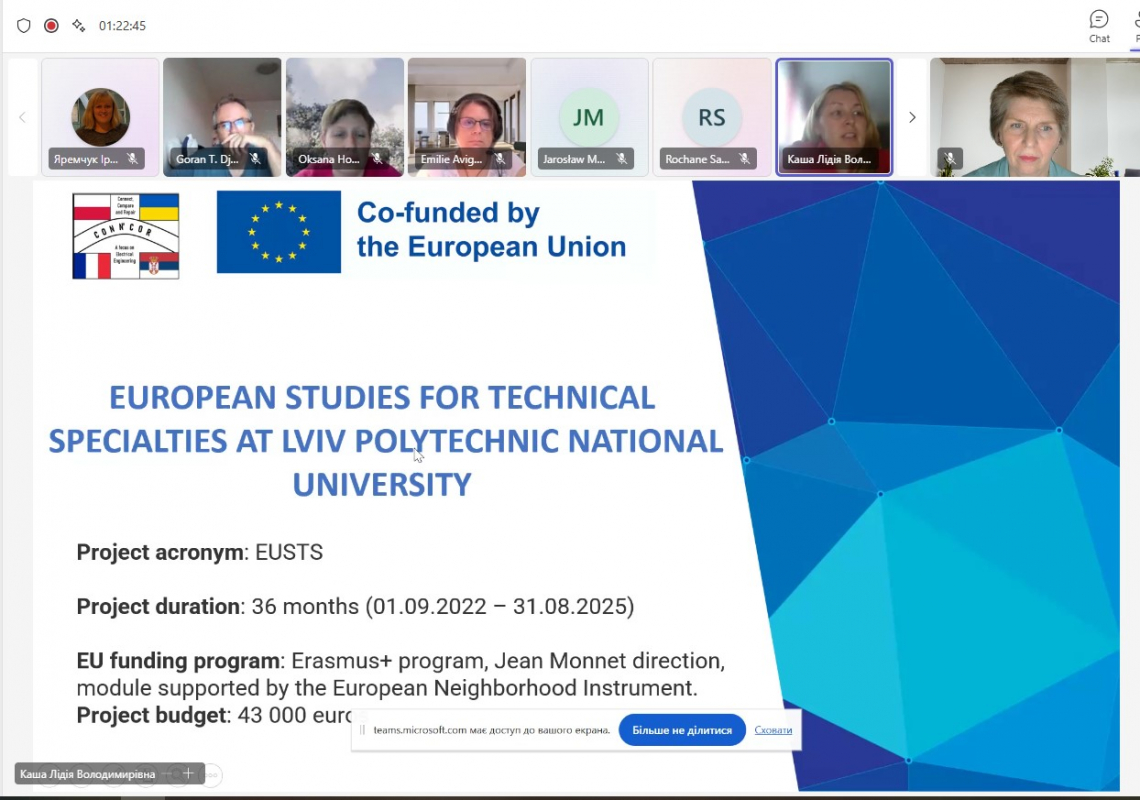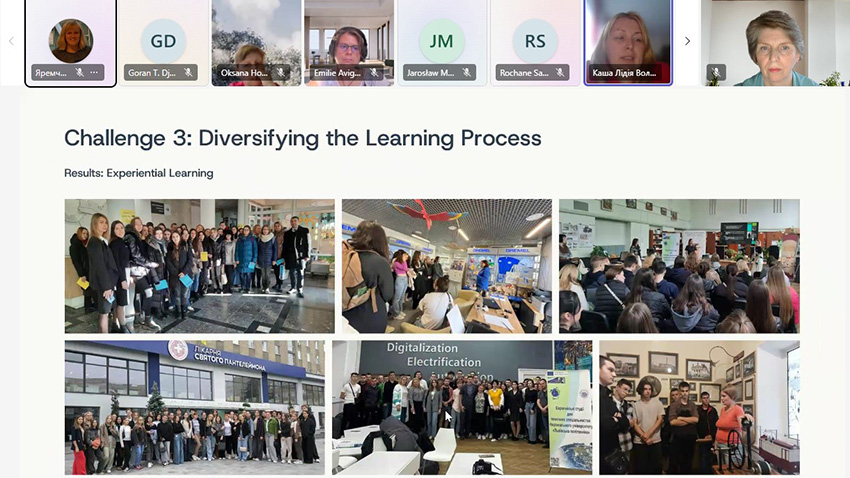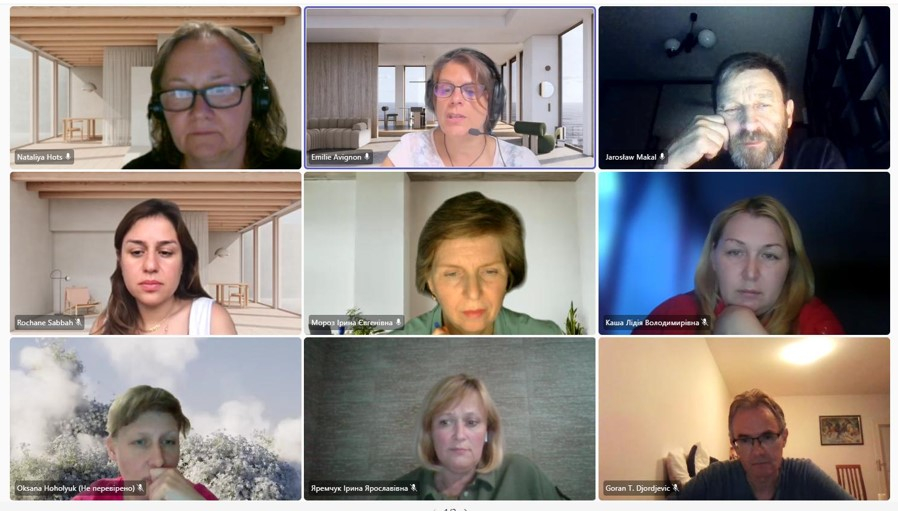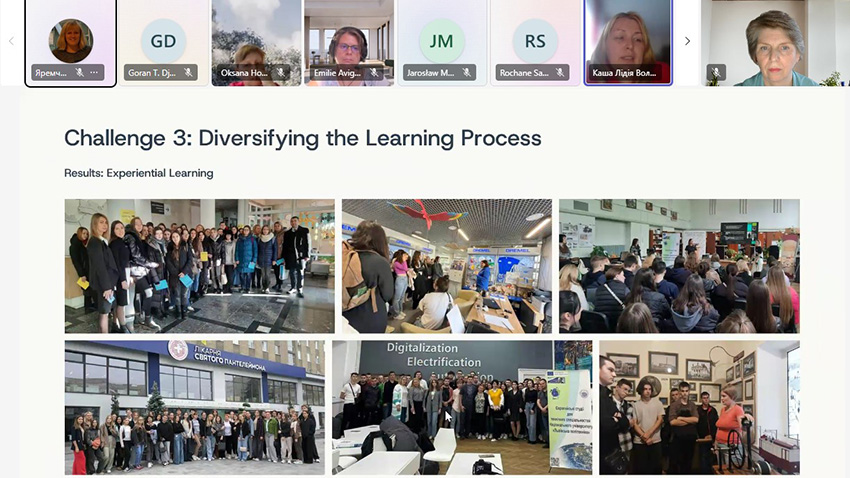On June 23, within the framework of the international Erasmus+ educational project CONN’COR (Connect, Compare and Repair for a Common Future with Ukraine), a webinar was held to share experiences on international projects that have already been implemented in previous years. The event brought together representatives of Bialystok University of Technology (Poland), University of Nis (Serbia), CentraleSupélec University (France), and Lviv Polytechnic National University which presented their achievements in education, innovation, and intercultural cooperation.
The project brings together representatives of four Departments of Lviv Polytechnic, namely the Department of Electronic Engineering (Institute of Information and Communication Technologies and Electronic Engineering), the Department of Theoretical and General Electrical Engineering (Institute of Power Engineering and Control Systems), the Department of Information and Measurement Technologies (Institute of Computer Technologies, Automation and Metrology), and the Department of General Physics (project coordinator, Institute of Applied Mathematics and Fundamental Sciences),
French experience: CentraleSupélec projects
Rochane Sabbah, Project Manager at the International Affairs Department of CentraleSupélec, spoke on behalf of the French side. She presented three key initiatives:
- Development of an engineering and science complex at the University of Nairobi (Kenya)
- The project is being implemented in cooperation with the ParisTech group and is funded by the French Development Agency. Its goal is to create a modern learning space for training highly qualified engineers in accordance with Kenya’s national strategy until 2030.
- NePRev – Interdisciplinary Master’s Program for the New Industrial Revolution
- This is an Erasmus+ project aimed at updating educational programs, strengthening relations with industry, and developing innovative international educational cooperation.
- VRAILEXIA – digital and AI tools to support students with dyslexia
- The project brought together more than 10 partner institutions from across Europe and focused on developing VR tests, AI platforms, and curricula to increase inclusivity in higher education.
Achievements of Lviv Polytechnic
From the Ukrainian side, the faculty of Lviv Polytechnic National University presented their implemented initiatives.
- Professor Iryna Yaremchuk (Department of Electronic Engineering) presented the MEGA (Horizon 2020) project on lead-free fluorescent materials for organic light devices with increased efficiency and reduced environmental impact.
- Associate Professor Lidia Kasha (Department of Theoretical and General Electrical Engineering) shared her experience in implementing the EUSTS Jean Monnet Chair project, which aims to introduce European studies into the curricula of technical specialties and expand knowledge about the EU among students, teachers, and civil servants.
- Professor Nataliia Hots (Department of Information and Measurement Technologies) presented the project «Solidarity with Ukraine», implemented in cooperation with the Warsaw University of Technology under the NAWA program, which gathered more than 500 students, graduate students and teachers at the conferences, language schools, trainings and academic exchanges.
The information presented during the event aroused sincere interest among the participants, a lively discussion, and a number of questions related to both technical and organizational aspects of the implemented international projects. The discussion allowed us to reach a new level of dialog between universities on further cooperation.
Particularly important was the initiative that was voiced by Rochane Sabbah, a representative of the International Affairs Department, CentraleSupélec (France), after the speech of Professor Nataliia Hots, Head of the Center for International Education at our university. She suggested:
«We can organize a meeting later to discuss a possible agreement. We can start with a semester exchange or a double degree agreement. Now we have a similar situation with Lebanon – students come only from Lebanon to France. We can imagine something similar with your university».
This initiative can become the basis for creating new academic programs, developing academic mobility, and implementing joint educational initiatives. Therefore, the webinar undoubtedly became another step towards strengthening inter-university relations, sharing best practices and forming a common educational ecosystem in the face of global challenges.
